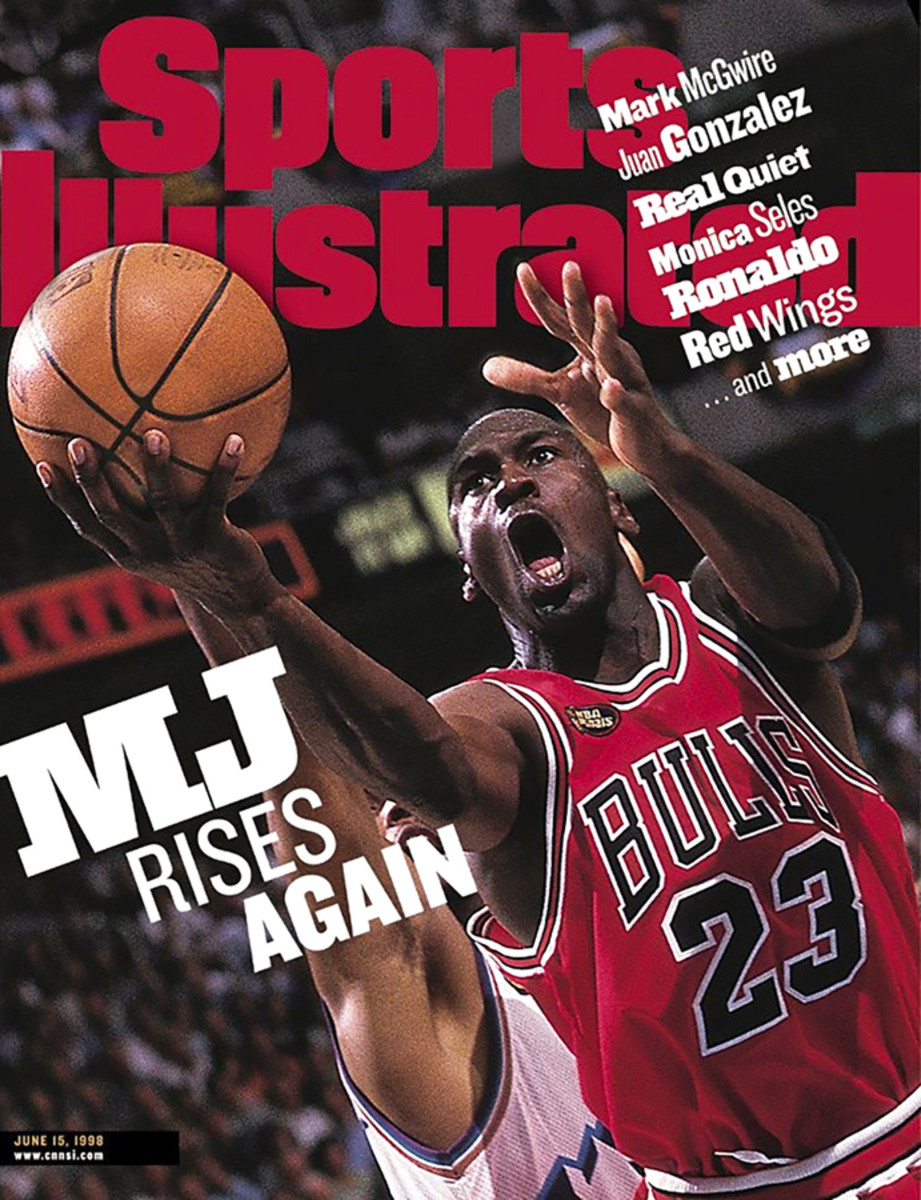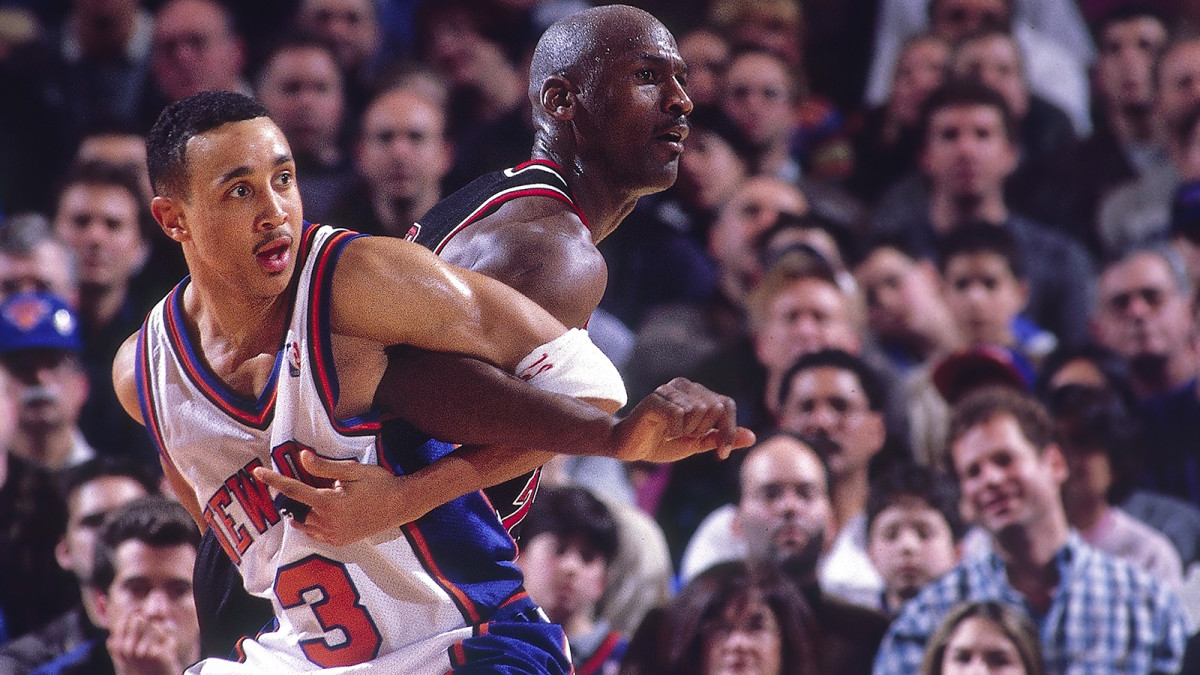What We Want to See in ESPN’s Michael Jordan Documentary ‘The Last Dance’
ESPN has moved up the release date of the 10-part documentary series on Michael Jordan and the Chicago Bulls’ 1998 NBA Finals run. The Last Dance will air on ESPN on Sunday nights over five weeks from April 19 through May 17. With the sports world on pause due to the coronavirus pandemic, NBA Twitter made a huge push to ESPN to #ReleasetheTapes!
Here is the summary of the documentary by ESPN:
In the fall of 1997, Michael Jordan, Bulls owner Jerry Reinsdorf and head coach Phil Jackson agreed to let an NBA Entertainment film crew follow the team all season long. The result would be a remarkable portrait of an iconic player and a celebrated team – a portrait only now being revealed, more than two decades later, in “The Last Dance.”
As the series weaves its way through the tumultuous 1997-98 season, viewers will be transported back to how it all began – from Jordan’s childhood roots, the Bulls’ dire circumstances before his arrival and how the team was built after drafting him in 1984, to the struggles that eventually led to the team’s first NBA championship. As the series takes the audience through the Bulls’ first five championships, viewers will experience the off-court challenges, struggles and triumphs that were a part of the culture-shifting phenomenon created by Jordan and the Bulls.
The Crossover staff put together a roundtable on what we want to see in the documentary.

Mark Bechtel
My great hope is that The Last Dance delves into Jordan's baseball career. I spent an inordinate amount of time as a teenager at Joe Davis Stadium in Huntsville, where I hawked Stars souvenirs. In the summer of '94, I was fresh out of college and unemployed, and I remember going down to the park one Sunday afternoon to see the Barons and the Stars. Hopefully, somehow, video exists. It would bring back wonderful memories. And if you listened really close, you could probably hear 23-year-old me heckling Jordan with, "Get a hit, Magic!" I wasn't very clever then, either.
Jarrel Harris
I grew up obsessed with Michael Jordan and the Bulls. My father was a huge MJ fan and watching the team was basically the starting point for my NBA fandom. I don't think we will ever see someone more marketable than Jordan. He was a global icon and his brand is still relevant today. I just can’t wait for all of us on social media to watch this together as a family. We survived Joe Exotic takes for a week, imagine what we are going to do when we see MJ go off on someone.
Michael McCann
Getting to watch The Last Dance will be a much-needed break from non-stop, and often dispiriting, news about the coronavirus disease pandemic. The 1997-98 NBA season is one that I remember well. I was a senior in college. The Bulls were unstoppable, as they were throughout much of the 1990s. It was their decade.
Revisiting the 1997-98 season will also be a reminder of an NBA era where the league and players had a much more adversarial relationship. As Jordan and the Bulls broke records, players and owners were on the verge of a lockout that would run from July 1998 to January 1999. The lockout would reshape the NBA’s law and economics well into the following two decades.
Like all labor disputes, there were many components to the one in 1998. One key issue was owners’ demand for maximum salaries. The league had a salary cap that, because of exceptions, didn’t always apply. Consider that Michael Jordan’s salary in the 1997-98 season was $33.1 million, yet each team, including the Bulls, had a salary cap of $26.9 million.
Jordan was literally paid more than the rosters of entire teams.
If any player should have been paid more than teams, it was Jordan. Not only is he the GOAT, but his marketability turned the NBA into a television powerhouse—and one that made many other people rich. If players should be paid according to their true value, $33.1 million for one season of Michael Jordan was probably a bargain.
The Bulls could pay Jordan so much more than other teams because of the exception for “Qualified Veteran Free Agents,” better known as the Larry Bird Exception. It still exists (albeit in a more restrained form) and permits teams to sign their own free agents at higher dollar values than other teams. The logic of the exception is straightforward: it encourages star players to remain with their teams since those teams can pay them more. The league, as well as its sponsors and broadcast partners, benefit when players are seen as loyal to fan bases.
The Bulls weren’t the only team to take advantage of the Bird Exception. The Miami Heat, for example, retained Alonzo Mourning in 1996 by signing him to a seven-year, $105 million deal. That same year the Washington Wizards convinced Juwan Howard to stay, also through a seven-year, $105 million deal. Teams were basically defying the spirit—but not letter—of the salary cap through the Bird Exception.
The lockout ended with the players agreeing to a CBA that instituted maximum salaries according to players’ service time. Even with the Bird Exception retained, teams couldn’t go above certain maximum salary thresholds.
Fast forward to the 2000s and 2010s, and a number of star players, including LeBron James and Kevin Durant, switched teams as free agents. Their franchises could still pay them more than other potential suitors, but the degree of difference had been reduced from 1990s. Teams could no longer “buy loyalty” like they could a decade earlier. Would LeBron have remained a Cav his whole career, and would KG have stayed with the Sonics/Thunder over the last 15 years, if the same wage rules were in place for them as were in place for Jordan?
We’ll never know. But part of what made the 1997-98 season so magical was that Jordan enabled the Bulls to have such a long run—six titles during the decade. Change the pay rules that governed the Bulls and Jordan to the ones that LeBron and Durant later experienced and history might have been very different.
Maybe the “last dance” happens earlier in time. Or maybe it doesn’t happen at all.

Jeremy Woo
This feels like good news and a proper distraction. And while I’m fully prepared for this to be shoved down my throat for the next two months, I’m from Chicago and I obviously will watch. I mean, why wouldn’t we?
Michael Shapiro
Just like the reruns we are currently watching on TV, we know how The Last Dance will end. Michael Jordan will steal the ball from Karl Malone and bury a game-winning jumper over Byron Russell, sealing his sixth championship with a flourish. But knowing the destination shouldn’t spoil the journey.
The Last Dance appears to be packed with behind-the-scenes footage and a slate of notable interviews, sure to produce a collection of memorable Jordan moments. And I don’t want an airbrushed MJ. I hope to see Jordan’s legendary competitiveness in action, whether it’s yelling at Steve Kerr or taunting the Pacers. If we can’t have live playoff games in April and May, watching a manically-competitive Jordan is the next best thing.
Robin Lundberg
We could use any hoops fix and a Michael Jordan reminder. So The Last Dance comes at just the right time. I watched MJ when I was younger but I'm looking forward to seeing how those Bulls teams are portrayed from Jordan's competitiveness, to Rodman's craziness to how Phil Jackson kept it all together. I think it will also bring up some organic discussion that was perhaps missing without sports. Putting Jordan back in the forefront can never hurt introducing a new generation, offering up some nostalgia and reigniting GOAT debates. I also hope it could lead to other places releasing their content to stream as well.
Ben Pickman
There is a lot to look forward to in ESPN’s The Last Dance. Among other things is the footage from NBA Entertainment that has never previously been seen. I’m also interested to see how the project as a whole stitches together that particular 1997-98 season with the broader story of Jordan’s life and career and of course—I'm sure there will be plenty of rich and colorful stories featured along the way. One other thing I’m curious about is how director Jason Hehir decided to approach the story of the murder of Michael’s father, James, in 1993. Additionally, in discussing Michael, I wonder how the film will touch on other not as pleasant parts of Michael’s legacy, including his gambling habit and of course, his baseball career.
